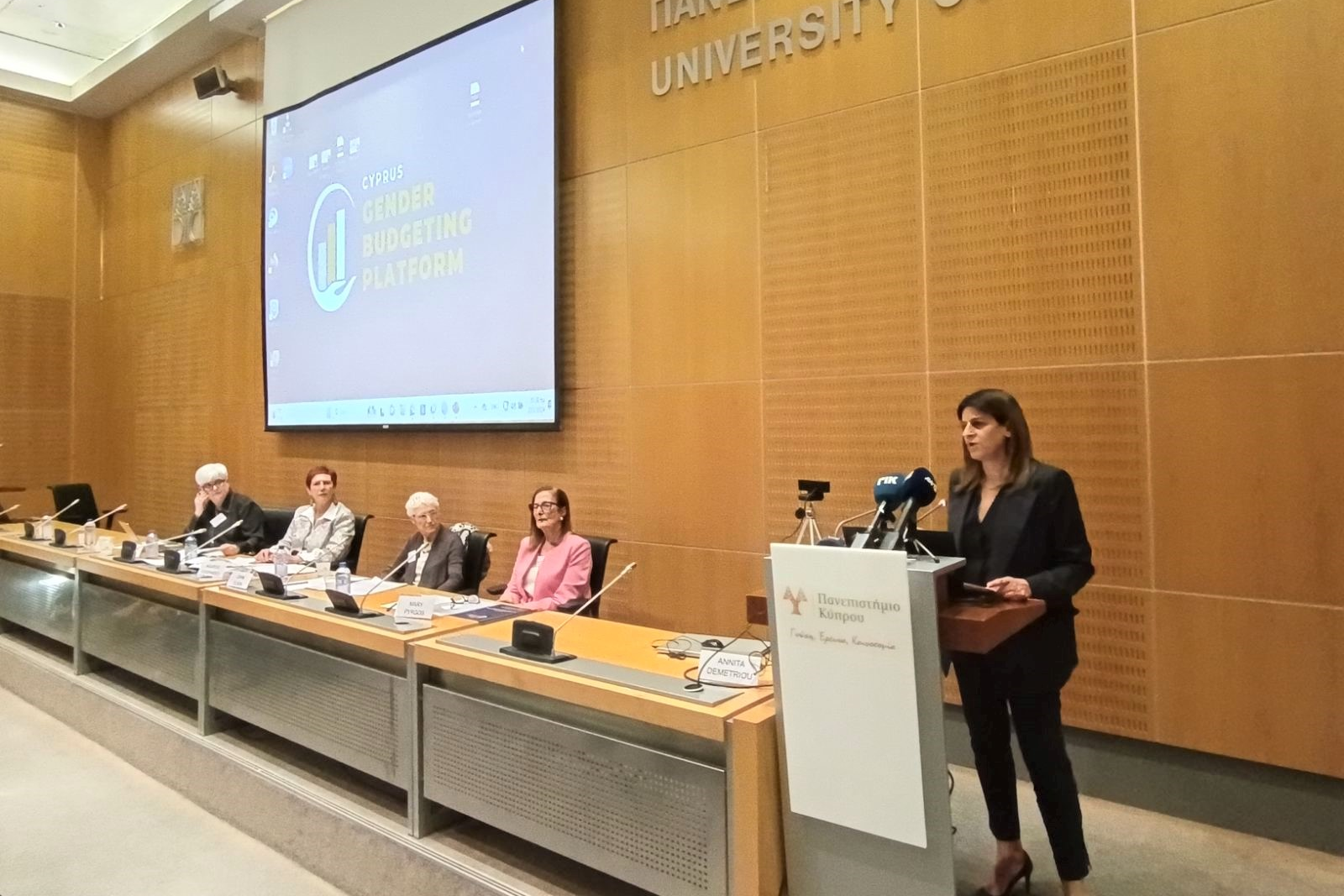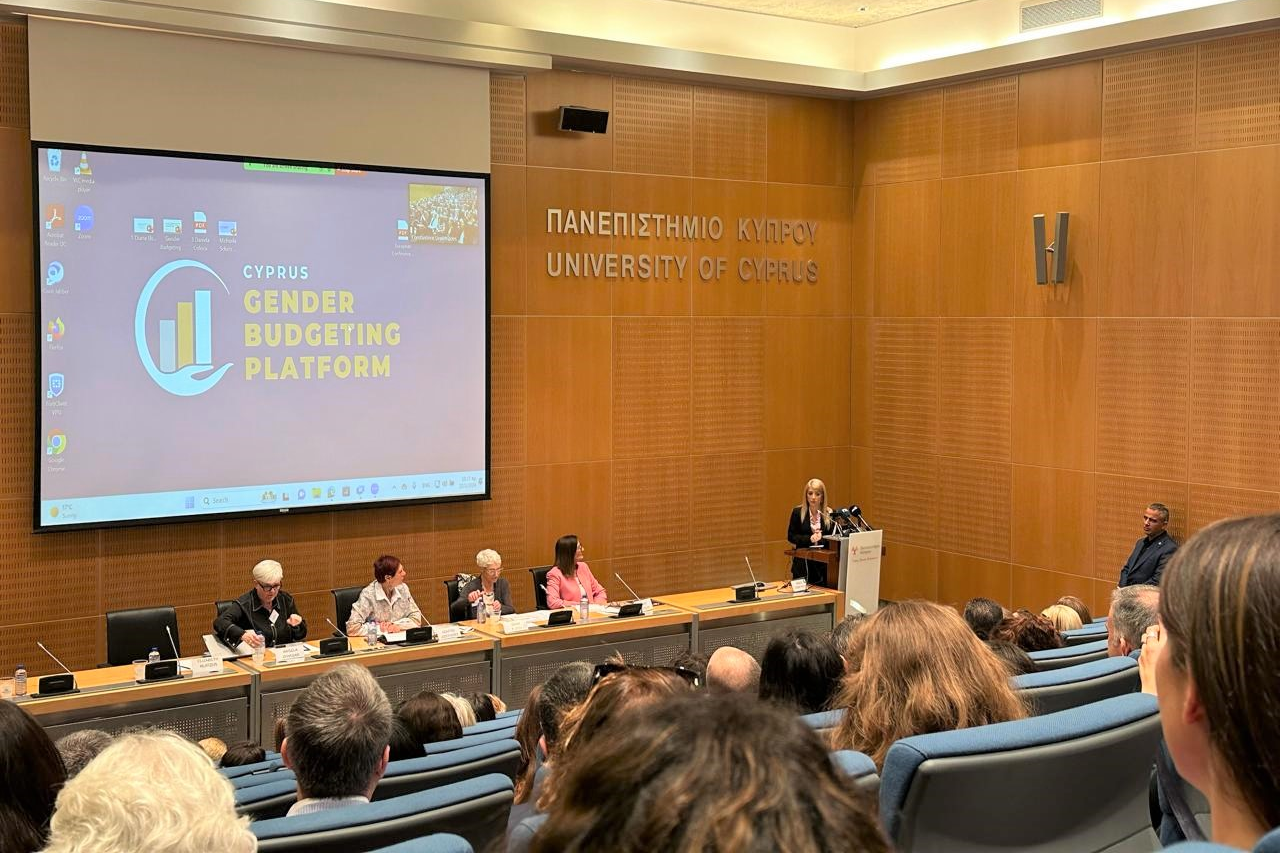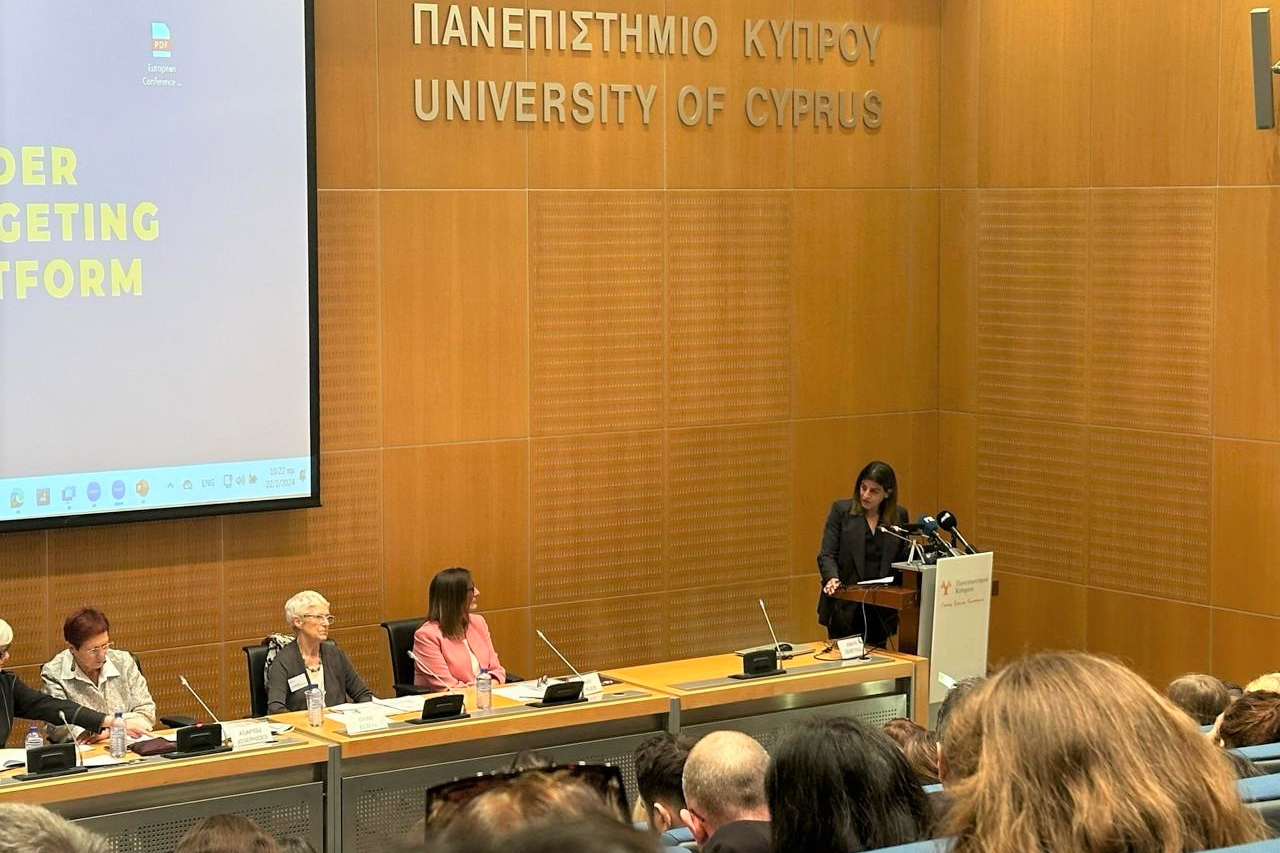Press Releases
22-02-2024 11:29
Address by the Commissioner for Gender Equality, Ms Josie Christodoulou, at the European Conference for Gender Budgeting. Achievements, Challenges, the way forward
On behalf of the President of the Republic, I warmly congratulate the Cyprus Gender Budget Platform and Ms Mary Pyrgou, for taking the initiative to organise this two-day European conference. Such initiatives confirm the common aim to accelerate the efforts towards gender equality. Public discussions and sharing experiences are crucial elements of our common agenda.
The Cyprus Government has set gender equality high on its priorities and since March 2023 we are working hard, we are creating more synergies and collaboration as for me personally it is of high importance that we keep the issue of gender equality on the surface, but also through the formulation of targeted gendered policies.
Toward this direction, our office has been upgraded and now has a role in the drafting of the national strategy, its coordination and monitoring. We are very well aware that promoting gender equality and securing women’s human rights is vital for the social and economic development of all democratic societies. Many important steps have been taken in our country in the field of legislative and institutional reform for gender equality as well as the formation of a policy framework with the adoption of National Action Plans aimed at eliminating discrimination and promoting the equality between men and women in various sectors. Without a doubt, Cyprus accession to the European Union has played a very important role on the road towards equality.
The harmonisation with the European legislation secured many rights and improved the position of women. Considerable progress has been made over the past few years. However, the pandemic crisis including climate crisis has affected the progress in the promotion of gender equality in specific areas, and in the overall advancement of women’s rights. We all agree that there is still much work left to be done, in order to ensure that women are in fact equal members of society. The government is stepping up and has already started the implementation of substantial policies and actions.
By decision of the Council of Ministers, all Ministries and Deputy Ministries appointed equality officers, and an Interministerial Committee was established presided by the Commissioner for Gender Equality.
The Office of the Commissioner for Gender Equality recognised the need to mainstream gender across the board. A Ministerial Decision authorised the Office to draft, coordinate, monitor and evaluate the new strategy for gender equality in cooperation with all the ministries and deputy ministries.
The Strategy aims at a horizontal gender mainstreaming in government policies. The new National Strategy, which was approved by the Council of Ministers and entered into force beginning of January 2024, includes different thematic areas and a great number of actions and policies to be implemented by the government within a period of three years, 2024-2026.
The new Strategy aims to mainstream gender in public policies. That is an important tool in order to achieve a culture and a socio-economic environment of gender equality ensuring that the government’s decisions have an equal and positive impact on both women’s and men’s everyday life.
In this respect, and in an effort of holistic approaches, this cannot be achieved if we do not mainstream gender in public finances. Gender budgeting is the tool to take us forward. Gender budgeting is one of the most important aspects of the new strategy. The government has already applied for technical support from the Directorate-General for Structural Reform Support of the European Commission. The final decision on the Cyprus’ application is expected in March. The implementation of this reform is expected to be of great importance towards the direction of achieving gender mainstreaming in our country.
At the same time, and as it is well known, in order to put in place holistic gendered policies and actions there is a need for the collection of sex-disaggregated data in order to better understand the different needs of women and men but also to address them. The Statistical Service issued the first Gendered Statistics publication in June 2023 and an updated version is expected to be published by the end of the year. Accurate sex-disaggregated data will assist the government to mainstream gender in public finance, which in turn will assist the implementation of targeted policies and measures.
Gender budgeting reforms in combination with the collection of data will be helpful to further develop and design even more impactful policies. Mainstreaming gender in the budgetary process, means that each Ministry and Deputy Ministry should be in position to budget and take into consideration the different needs of men and women.
Gender budgeting reforms together with the new structural efforts and the efforts in mainstreaming horizontally in governmental policies will assist in closing the gender inequalities gap.
Effective implementation of gender budgeting requires political commitment, administrative commitment, improved technical capacity, civil society involvement and sex-disaggregated data. We are on our way there in order to achieve all the enabling conditions to efficiently implement gender budgeting.
Ladies and gentlemen,
In closing, I would like to underline that the government aims to work holistically with interrelated actions in the whole spectrum of life in order to consolidate the culture of gender equality.
In this direction, the government, including of course our Office, is working closely with the civil society, universities, the private and public sector in order to break down and eliminate stereotypes and prejudices. The aim is one and it is clear: Gender equality will only add so that we live in a healthier society and have a stronger economy. Gender budgeting is a tool that takes into consideration the unique and diverse needs of women and men and ensures a fair distribution of resources.
(EP/NGian)
Relevant Press Releases










